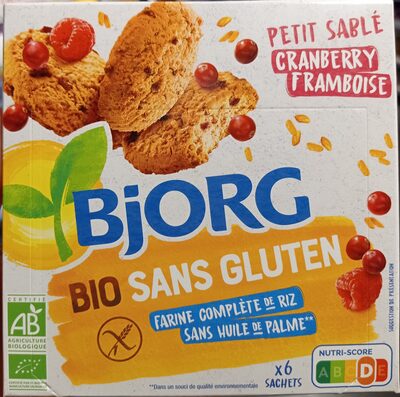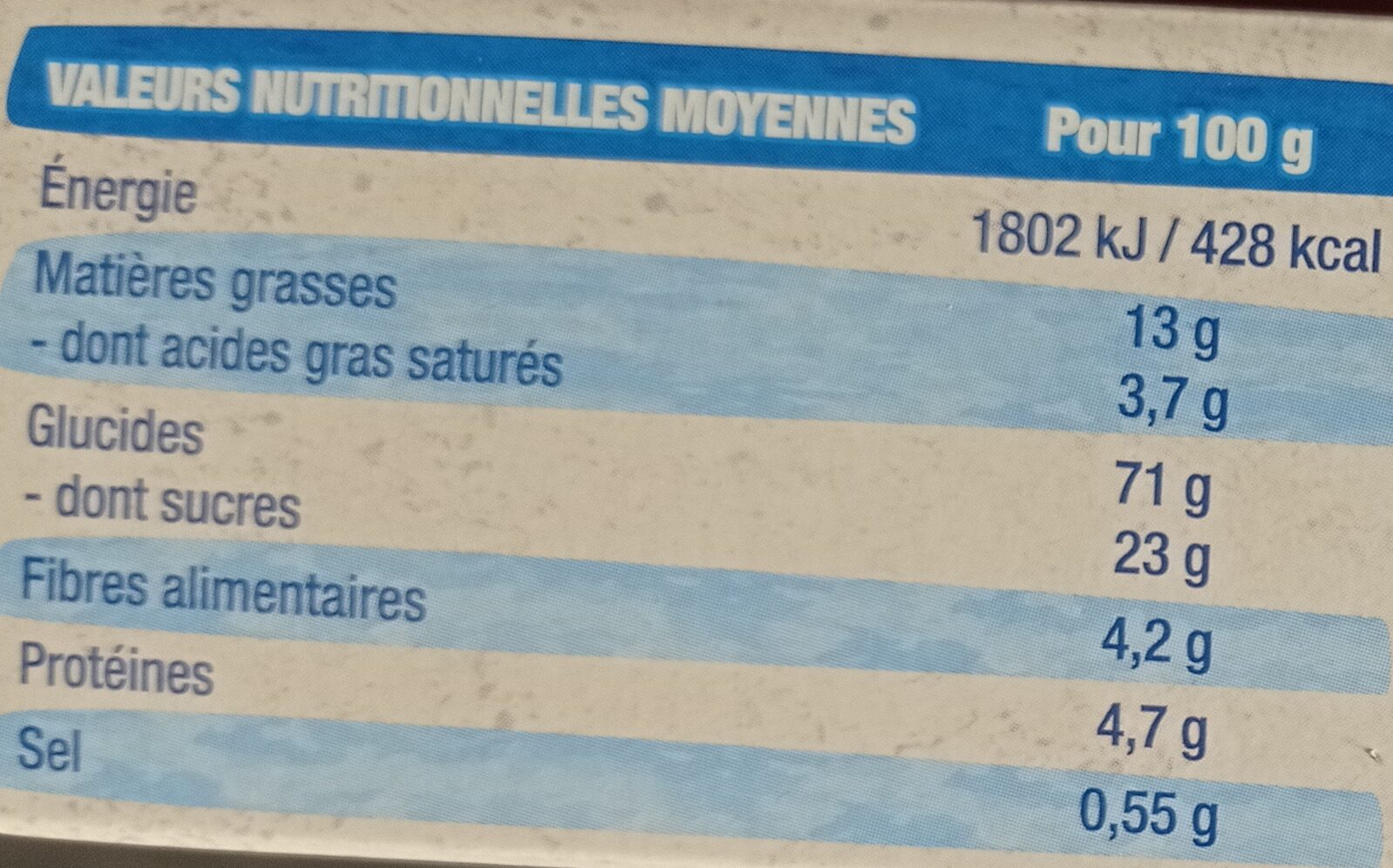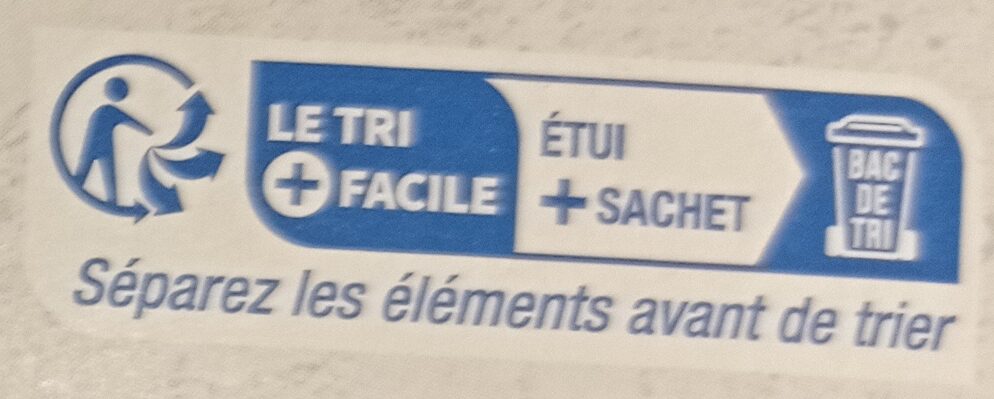Petit sablé bio sans gluten - Bjorg - 150 g
This product page is not complete. You can help to complete it by editing it and adding more data from the photos we have, or by taking more photos using the app for Android or iPhone/iPad. Thank you!
×
Barcode: 3229820801599 (EAN / EAN-13)
Quantity: 150 g
Brands: Bjorg
Categories: Snacks, Sweet snacks, Biscuits and cakes, Biscuits, Shortbread cookies
Labels, certifications, awards:
No gluten, Organic, EU Organic, Made in Italy, No palm oil, Nutriscore, Nutriscore Grade D, AB Agriculture Biologique

Countries where sold: France
Matching with your preferences
Report a problem
Data sources
Product added on by kiliweb
Last edit of product page on by roboto-app.
Product page also edited by chevalstar, moon-rabbit, openfoodfacts-contributors, teolemon, yuka.sY2b0xO6T85zoF3NwEKvlhdgfsTFmWqfaBLlu2yzx_Otc7zVbPx73dbVI6g, yuka.sY2b0xO6T85zoF3NwEKvllF8a9n4iG_iajbjmVSk4uieCaa1cdRZyZj_Lqs, yuka.sY2b0xO6T85zoF3NwEKvlnBMVOPYrAj-LT3lwR3a7O2HKbjaMNUs3oHbNqg.














